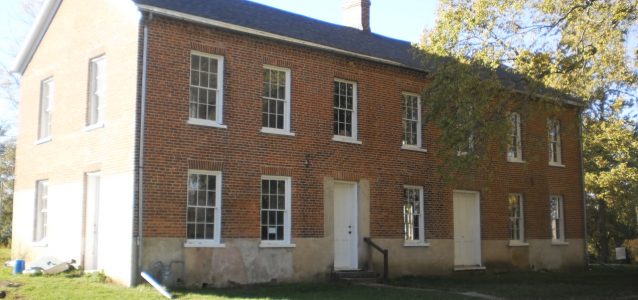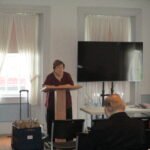On June 15, 2019 at 2 p.m. at the Dairy Building, there will be a one hour free public presentation by Cynthia Clampitt about the impact corn has on society. The Dairy Building is located at 410 North Erickson Street. This program is hosted by the BHHA and sponsored by the IHC Road Scholars Bureau.
About 10,000 years ago, a weedy grass growing in Mexico possessed of a strange trait known as a “jumping gene” transformed itself into a larger and more useful grass—the cereal grass that we would come to know as maize and then corn. Nurtured by Native Americans, this grain would transform the Americas even before First Contact. After First Contact, it spanned the globe, but it also drove westward expansion in North America, building cities and inspiring innovators and entrepreneurs. However, vampires, whiskey, Henry Ford, time zones, Fritos, and the Chicago Bears are also part of this remarkable story. And, as Margaret Visser noted in Much Depends on Dinner, “Without corn, North America—and most particularly modern, technological North America—is inconceivable.” Illinois is the second largest corn producer in the nation, and McLean County, Illinois, is the nation’s number one corn-producing county. People moved to Illinois with the purpose of growing corn. Illinois history is corn history – yet, today, many Illinoisans have little direct experience with the sources of their food and the people who produce it. Even for those who know corn well, there is much to learn about its historic impact and why it is so vital today.
Cynthia Clampitt is a writer and food historian. She has pursued her love of culture, history, and food in thirty-seven countries on six continents, but in recent years has focused her studies on the American Midwest. She is the author of Midwest Maize: How Corn Shaped the U.S. Heartland, published by the University of Illinois Press and Pigs, Pork, and Heartland Hogs: From Wild Boar to Baconfest, published by Rowman & Littlefield. She has written for three decades about food history, and has also written more traditional history and geography for clients that include the Colonial Williamsburg Foundation and National Geographic Learning. Clampitt is a member of the Society of Women Geographers, Culinary Historians of Chicago, the Agricultural History Society, the Association of Food Journalists, the Midwestern History Association, and the history section of the International Association of Culinary Professionals









 News & Events
News & Events


